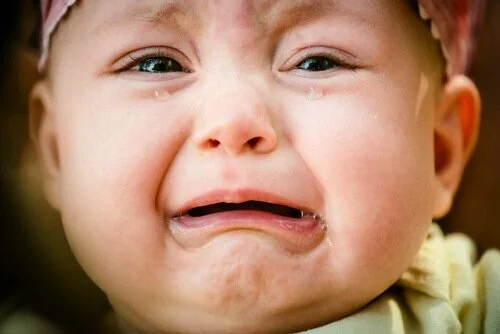 My son recently went hoarse, and started acting as though he didn’t feel good. This might be normal for an adult, however, for my 9 month old, this kind of upset me and I wondered if this was something to worry about.
My son recently went hoarse, and started acting as though he didn’t feel good. This might be normal for an adult, however, for my 9 month old, this kind of upset me and I wondered if this was something to worry about.
After tons of research, and talking to his pediatrician, we waited to see if symptoms changed, or progressed. I decided I wanted to share this experience even though, this time, it was nothing serious so that other moms like me know what to do if this happens to your child.
Luckily, Bubby was only a little hoarse from crying, and teething. As any mother, I hope he is always healthy and happy, but I know at some point there will be sickness, and in those times, we need to know what to look for.
When a baby, or small child ages 0-3 gets sick, it is definitely something that we, as mothers, need to address immediately. Some of the amazing information I came across was very enlightening, and I wanted to pass it along.
When a baby becomes hoarse, the first thing you want to check for is coughing. This can be a sign of multiple things, all of which need to be addressed by a pediatrician or an emergency room if it is a weekend. Some of the scary coughs can include:
- The Barking Cough
- The Phlegmy Cough
- The Dry, Nighttime Cough
- The Miserable Cough
- The Wheezy, Gurgly Cough
- The Whooping Cough
- The Really Gross Cough
****You can read more about these coughs, their symptoms, and helpful tips to ease your child’s discomfort here at Parents.com
During my call with the doctors office, they recommended using a cool-mist humidifier, and also recommended not allowing him to cry if possible.
We ordered a humidifier from Crane, through Amazon, (shown on the right) and have not had any issues since. This is one thing I wish I had bought when he was still very small.
Also, according to many medical sites like WebMD, BabyMed, etc., they also recommend having both a cool-mist humidifier, as well as a vaporizer on hand. However, it is not recommended to use the vaporizers with infants and small children due to the steam and a risk of a burn.
Eventually, after a few days of babying my sweet little Bubby, and not letting him cry as much as possible, his hoarseness went away and everything returned to normal.
Some of the things you should look for when your child becomes hoarse are:
- Is the hoarseness accompanied by a cough?
- What does that cough sound like?
- Is there a fever?
- What other symptoms are present?
- Vomiting?
- Diarrhea?
- Cold Sweats?
- Are they acting lethargic?
All of these things, and more, make simple hoarseness a cause for concern. With all of the resistance to antibiotics, and people choosing not to vaccinate, now, more than ever, you have to pay close attention to signs and symptoms. It could mean the difference between life and death.
*I am not a doctor or medical professional. If you feel that your child is not acting right, or doesn’t seem normal, contact your child’s pediatrician immediately, or in the case of an emergency, call 911.
Some other helpful links and information can be located here:
- Center for Disease Control & Prevention
- When to Call a Doctor
- How Bad Is That Cough? 7 Bad Coughs to Worry About
- Hoarseness in Infants Almost Always Requires Treatment
- Causes of Hoarseness in Infants
- Mayo Clinic Symptom Checker (for parent or child)
If you found this post helpful, or would like to add additional information please feel free to comment below, and share your knowledge or experience with us!


Thanks for the information my children as well have had the hoarseness cough.